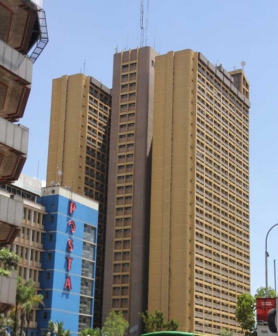
Christopher Sylvanus Oduor, a survivor of the Nyayo House torture chambers, vividly recalls the day of his arrest. Mr Oduor was arrested in 1986 from his workplace at the Kenya Society for Deaf children. His captors did not disclose the reasons for his arrest and insisted he could not inform anyone of the arrest.
"Two men claimed to have been sent by my friends to pick a hearing aid, but when I referred them to my boss, they opted to leave. They asked me to see them off so that they could disclose 'the friend' but when we got outside, a third man who introduced himself as a police inspector appeared from nowhere and said I was under arrest," narrated Mr Oduor.
He was blindfolded, driven to Nyayo House and thrown into the dark and cold cells.
Naked interrogation
"All my interrogation session began with stripping naked, doing a round of push-ups before lying on my back in a crucifix position where one officer would stand on my right hand and the other on the left," he said.
In the first cell, after driving for hours with a blindfold, Oduor met a huge man in the cells who revealed to him that he had probably been arrested due to his close association with a musician, Ochieng' Kabasella.
At the Nyayo House torture chambers, Mr Oduor fell into the hands of the infamous and dreaded James Opiyo, the person in charge of a unit within the Special Branch tasked with extracting information from political dissenters in the 1980s.
78 days of hell
Oduor was one of the survivors who opened up about the torture chambers yesterday during celebrations to mark world Anti-Torture Day at La Mada Hotel in Nairobi.
Every day, Oduor faced a panel of nine or more officers who hit him indiscriminately. He was accused of being a member of a subversive group called 'Mwakenya' that was planning a revolution.
"You would think that I had grown grey hair, but it was all the eggs that lice had laid on my thick beards. My wife and eight children had been left all alone," he said.
After 78 days in the dens of hell, Oduor was jailed for six more years and his appeal bore no fruit as the chief prosecutor, Mr Benard Chunga, argued that he had been given a lenient sentence.
 The Standard Group Plc is a multi-media organization with investments in media
platforms spanning newspaper print
operations, television, radio broadcasting, digital and online services. The
Standard Group is recognized as a
leading multi-media house in Kenya with a key influence in matters of national and
international interest.
The Standard Group Plc is a multi-media organization with investments in media
platforms spanning newspaper print
operations, television, radio broadcasting, digital and online services. The
Standard Group is recognized as a
leading multi-media house in Kenya with a key influence in matters of national and
international interest.



